This January I went to a Sunday service at Saint Thomas Church Fifth Avenue, New York City. The French Gothic design is incredible. The huge stone carving behind the High Altar, called the “Great Reredos,” must have taken lifetimes to carve. This link will give you a 360-degree virtual tour of the church: I was told Saint Thomas is one of only two churches in the world to have a boys’ choir composed of students at the Church’s school, and the other is Westminster Cathedral.
More than the building and music, I was struck by the sermon. The priest spoke about a “lack of theological imagination.” It struck me that he hit upon one of the key reasons why we, as a society, resist God. We are not able to imagine existence outside our fishbowl.
Imagine you are a fish in a fishbowl, and you wonder what it’s like outside your fishbowl. You probably can see out, and although images are blurred, and there is a huge difference between air and water, you sense there are creatures out there who move around like you do. Now imagine a heavy blanket over your fishbowl that blocks all light. Now you don’t know what’s out there. You do realize that periodically food is being added, so you acknowledge an existence of some type out there, although you are literally in the dark. But you would most likely assume it is some sort of creature composed of the same stuff as you – cells and DNA and a circulation system and so on.
For us, the fishbowl is our universe. We cannot see outside our fishbowl. We do know, if we’re honest about it – which admittedly most people are not – that both our universe (fishbowl) and all life were designed. We know this because chance is a pathetically inadequate explanation for the amazingly perfect design of the laws and constants of physics, and the beyond understanding complexity of life (think of the human brain). Let’s call this mind outside our universe “God.” We then ask, what does science tell us about God? Let’s put aside history and the Bible for now. Based solely on science, what can we know about God?
The answer is, not much. We know this mind out there, this God, is immensely powerful and intelligent. A being capable of creating our four-dimensional space-time universe is vastly different from the human minds we encounter in our fishbowl.
If you think along these lines, it becomes easier to see through the so-called “scientific” obstacles our culture throws up against the existence of God. Let’s start with the question “who created God”? Creation is a concept that exists in our fishbowl, where one event precedes in time another event and causes the second event to happen. But the question “who created God” incorrectly assumes that the concept of causation in time applies outside our fishbowl. Remember, God created time (and space), and created our fishbowl. God is outside of time. To ask a question that assumes our concept of time and our concept of causation apply outside of our fishbowl shows a lack of theological imagination.
Another typical, although often unspoken, barrier for many is that they literally cannot imagine a mind powerful enough to do all this – to create our universe and design all life. Again, this shows a lack of theological imagination. Just because the minds we encounter in our fishbowl – minds made up of atoms that exist in time – can’t do these things is no reason to suggest that the mind outside our fishbowl can’t do them. We cannot transfer the restrictions we see in our fishbowl to a mind outside our fishbowl. I think God has absolute control over every quantum phase state in our universe (see Chapter 14 of Counting To God). A being with that attribute could (and in my view has) done things – performed “miracles” – beyond our comprehension (like the resurrection of Jesus, which is by far the best documented event of the ancient world). How can that be? I don’t know, but to say that God can’t perform miracles shows an obvious lack of theological imagination, an incorrect assumption that what we see in our fishbowl applies outside our fishbowl.
One analogy that occurs to me is that the relationship between God and us could be similar in some ways to the relationship between us and a virtual character in a gaming program. We can create such characters and give them characteristics, but these characters, no matter how intelligent we might make them (think of powerful artificial intelligence, powerful AI), cannot appreciate us and our universe except to the extent we create them in our image – just as the Bible tells us we are created in the image of God. Yes we could give our AI characters some capacity to appreciate music and colors, but they can never experience the music and colors in our world. I use this analogy because many people who have had near death experiences, who have had a glimpse of what lies outside our fishbowl, will tell you that the colors and music outside our fishbowl are far superior and far more wonderful than what we experience.
If we make these AI characters smart enough, and give them enough ways to gain information (like our human senses) to learn about their world, they might be able to detect that we exist based on characteristics of their virtual world. But other than that, all they can know about us is what we tell them. In history, and in the Bible, God has taught us a great deal about the nature of God and how we are supposed to live our lives. The Bible is like an operating manual for life. To the extent you can follow it, your life is likely to be easier and less stressful.
Many reject the Trinity, the Christian three-in-one God, because they cannot imagine that kind of being. This betrays a lack of theological imagination, the false assumption that just because something doesn’t exist in our fishbowl it can’t exist outside the fishbowl. Despite the overwhelming scientific evidence that God has built into different kinds of animals the capacity to adapt, to “evolve,” into different species, many (most?) hang on desperately to a Darwinian fable of the “magic” and “power” of natural selection. This inability to conceive of a being powerful enough to build this fantastic technology into all life again reveals a lack of theological imagination.
God is outside our universe, outside our fishbowl, not limited by human concepts of intelligence and power. If we are honest, we know from science that God exists. Let us expand our minds and our theological imaginations to appreciate the wonder of God.
Thanks for reading,
Doug Ell




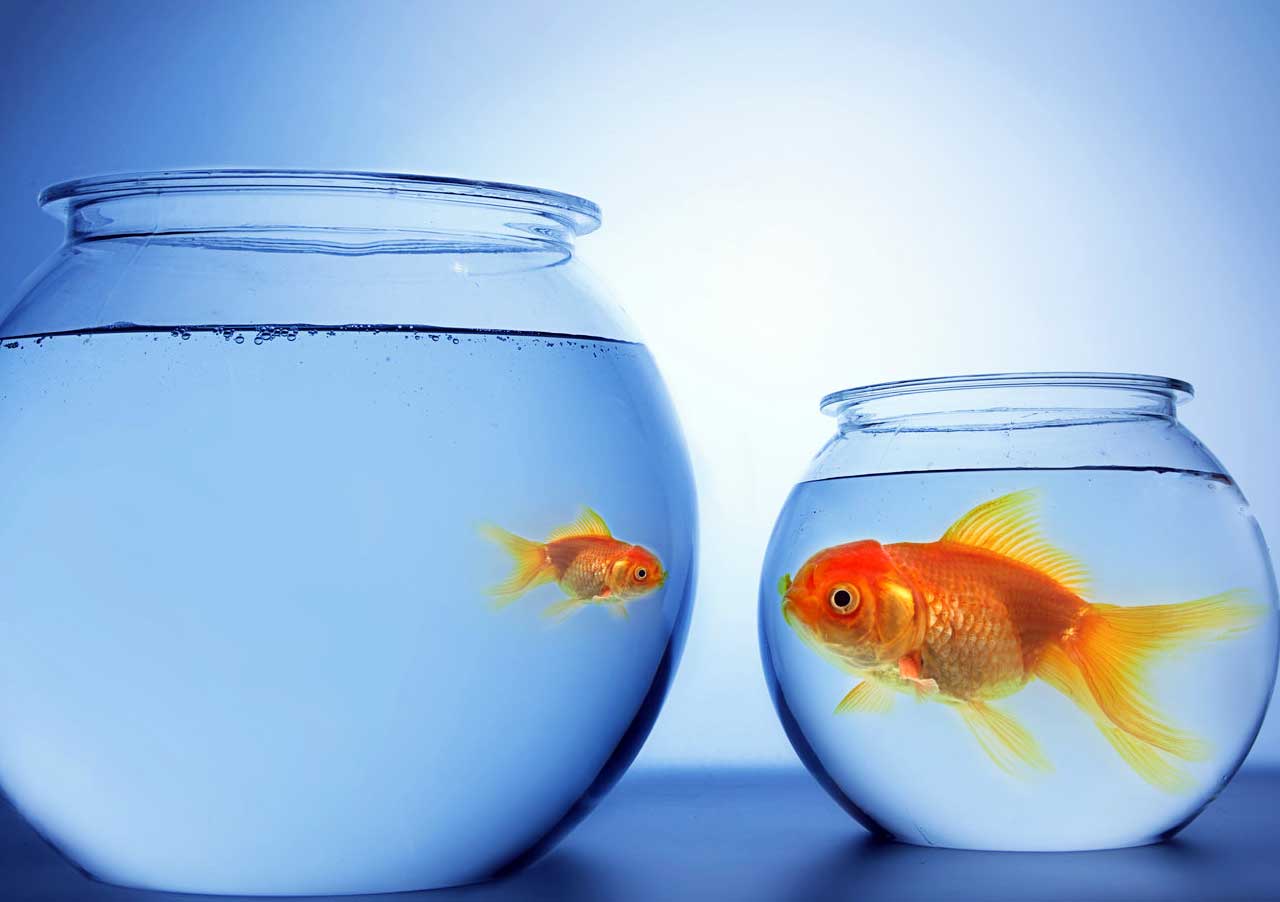
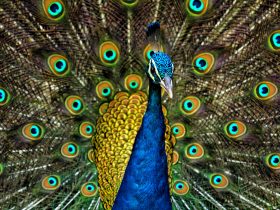
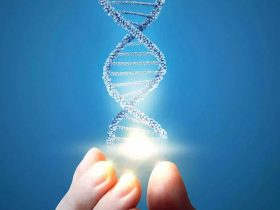
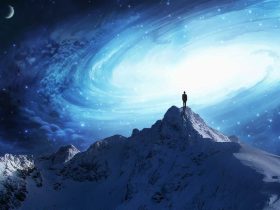

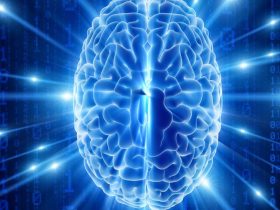



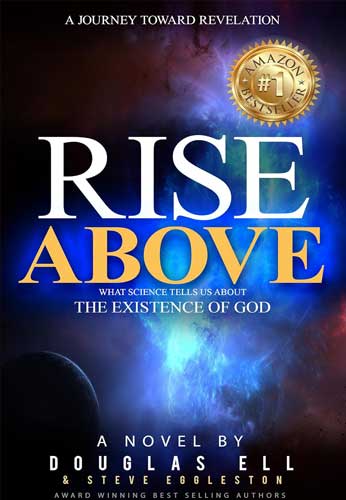

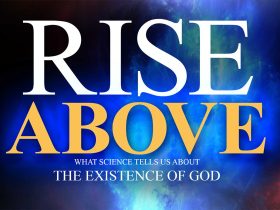


Doug,
It has been way too long since we have seen one another and shared a meal. Please let me know when you are coming to DC next so we can meet. Connie and I are in Cayman for two weeks – all of our kids are doing well. Many thanks for your thoughts above; I really appreciate the fishbowl analogy. I hope you are doing well.
Thanks, George
703-627-8852
Excellent, and something I really needed to hear in the world we are currently living in.